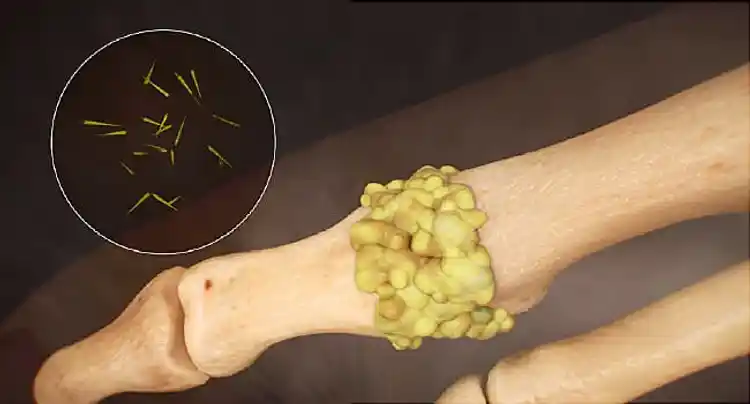What Is Gout?

Hide Video Transcript
Video Transcript
SPEAKER
Gout is a form of inflammatory arthritis that causes severe pain and swelling in one or more of your joints. These attacks happen suddenly when there's a buildup of uric acid, a chemical found naturally in your body's tissues. It's also in many foods, such as meat and shellfish. Normally, uric acid passes through your kidneys and leaves your body and urine. But in some people, the kidneys don't function properly and can't get rid of enough uric acid. In other cases, the body produces too much uric acid.
Over time, this extra acid can form into tiny sharp crystals, which collect around your joints. A gout attack strikes when your body's immune system is triggered, often at night. White blood cells engulf the crystals, causing inflammation, pain, and redness. Gout attacks usually happen in a single joint, like your big toe, or your knee.
Within hours, the pain and swelling can become intense. Pain relievers and anti-inflammatories are usually prescribed to ease pain and reduce swelling. After one to two weeks, the inflammation eventually goes away on its own. If you have gout, talk to your doctor about medications and lifestyle changes that can help.
